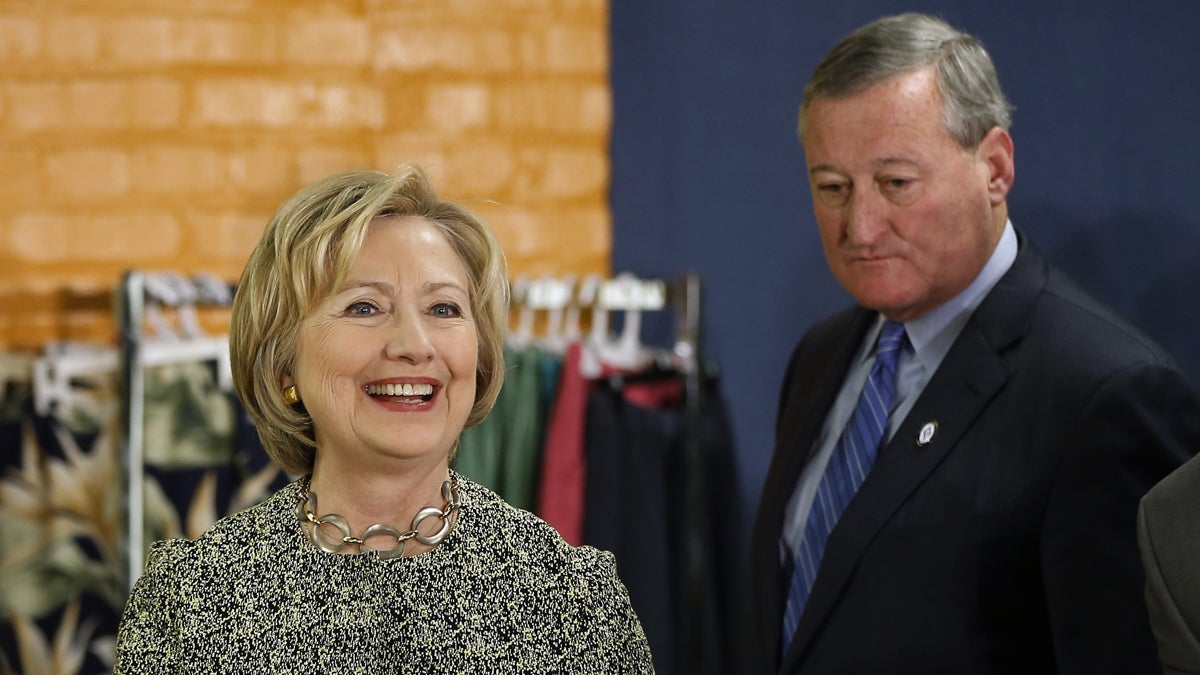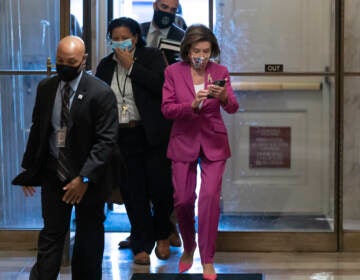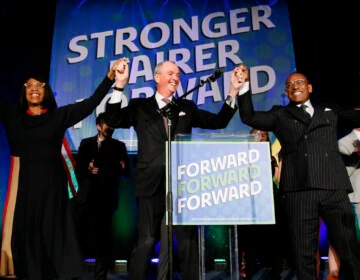The Democratic Party let down voters, not the other way around

Hillary Clinton is shown during a presidential campaign top with Philadelphia Mayor Jim Kenney in April 2016. Both are Democrats
Dear DNC chair and vice chair candidates,
As a recent immigrant, I couldn’t vote in the last election. I now call Philadelphia home, and I hope to be able to participate in the democratic process as a voter in a few years. At that point, I hope to be able to call the Democratic Party a political home.
My relationship with the Democratic Party is a bit rocky. When I moved to the United States and started to learn more about American history and politics, I was immediately struck by JFK. The messages of desegregation, civil rights, and the famous Peace Speech all resonated with me and my values. However, as I became more engaged with U.S. history, my admiration started to fade. Reading about the Civil Rights Movement made me wonder whether the Democrats are truly the party of civil rights, or the party that is willing to support civil rights when pinned against the wall.
As an Israeli and a Jew who strongly opposes the occupation of Palestine, and is ashamed of the atrocities that are supposedly done in my name, I am flabbergasted by the image of Democratic Party leaders lining up for photo-ops with pro-occupation groups such as AIPAC. As an aspiring Democrat, I found myself unsure of what the values of the party are.
There is a line from an Israeli poem that translates to “my world is narrow as the world of an ant.” What I want to share with you is from my narrow world. I hope that you, as chair or vice chair of the DNC, remember that there is an extreme disconnect between the way the Democratic Party views itself and the way it operates and affects the lives of many people.
A memorable moment from the first presidential debate was when Trump advocated for “stop and frisk” and Hillary responded, “Stop-and-frisk was found to be unconstitutional and in part because it was ineffective.” The tone in many liberal circles was “What kind of person would support a policy that is obviously racially discriminatory?” However, in Philadelphia, a Democratic mayor refuses to abolish the practice, even though it was one of his main campaign promises, and despite his party’s nominee for president calling the practice unconstitutional and ineffective. So which party is the Democratic Party — the one whose national leader views the policy as unconstitutional or the one that administers and continues racial profiling in policing in “blue” cities?
This disconnect exists not only in policing practices. The cities with the highest level of racial residential segregation are blue cities with Democratic mayors. Public health policies such as Philadelphia’s soda tax disproportionately hurt low income people. Cities tax the poor at the same time that the top of the Democratic ticket talks about taxing the rich.
In a panel on CNN recently, Van Jones said of the Democratic Party: “If we’re the party for the underdogs everywhere, we win.” That starts with policies at a very local level, where the underdog is struggling. It continues all the way to the top of the ballot with a consistent ideology. The Democratic Party must become a party that doesn’t only view itself as the obvious alternative, as the obvious champion for the poor, as the obvious advocate for the marginalized. The Democratic Party must stop aiming for the lesser of two evils. It can’t be the party of civil rights without being the home of the protester; that means that it can’t be the “Don’t boo, vote!” Party. It must become the “Boo and vote” Party. A party that realizes that many people’s’ lives are harder because of Democratic policies.
If the Democrats’ conclusion of 2016 is that voters (or those who didn’t vote) acted against their own interest, we lose. The Democratic Party wins if it realizes that in many instances it didn’t act in its constituents’ interest. The key is becoming the Party that doesn’t blame organizers, protesters, and voters but listens, learns, and acts as those peoples’ public servants.
I hope the Democratic Party can become my political home — a party of the Left that is a champion for social justice and change. Good luck to you in your future campaigns. The 2018 midterms and the 2020 presidential election may be on your radar now, but remember the Democratic Party also exists down the ballot.
WHYY is your source for fact-based, in-depth journalism and information. As a nonprofit organization, we rely on financial support from readers like you. Please give today.




